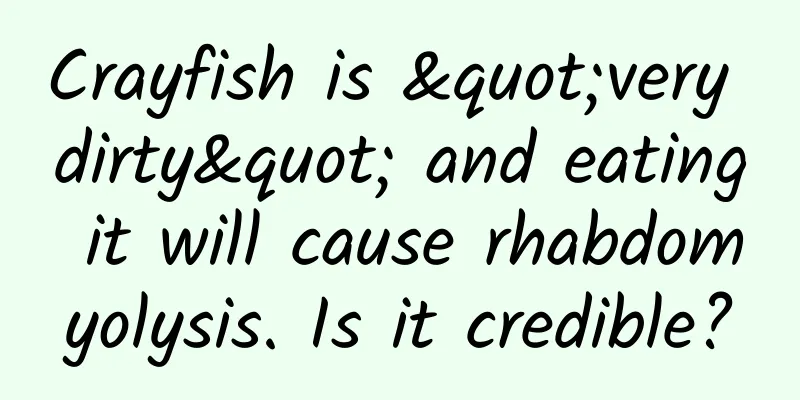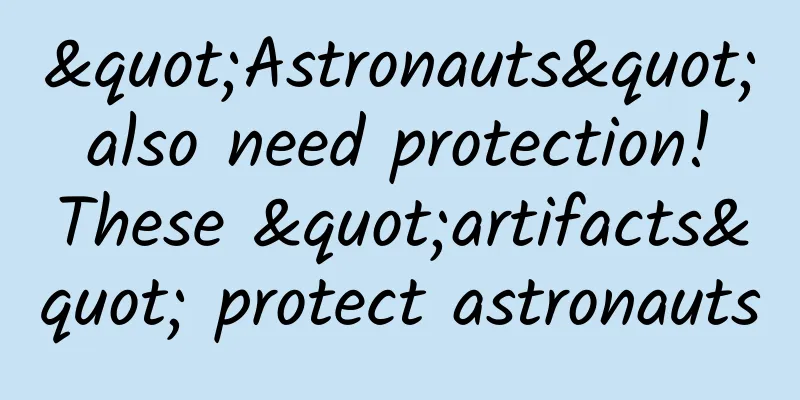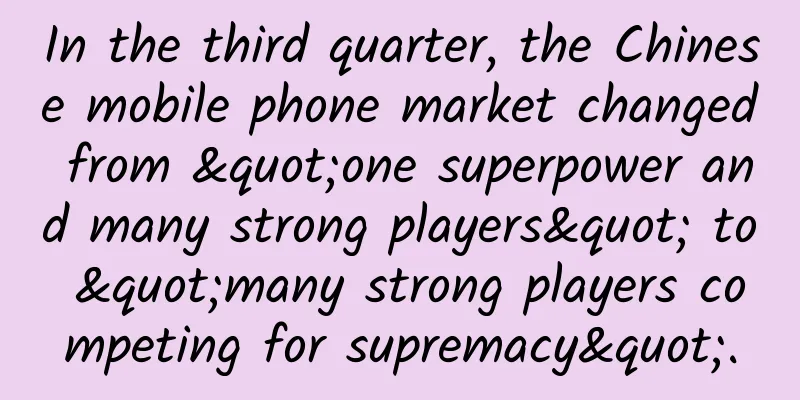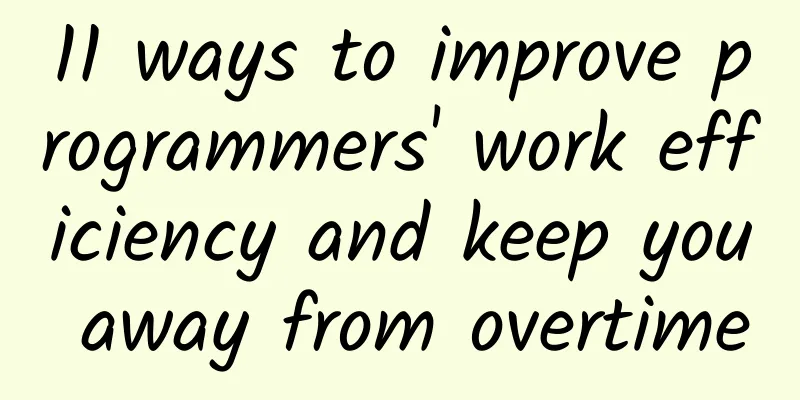Shanxi, the "sleeping province", has also become popular! Is the "nap gene" not groundless?
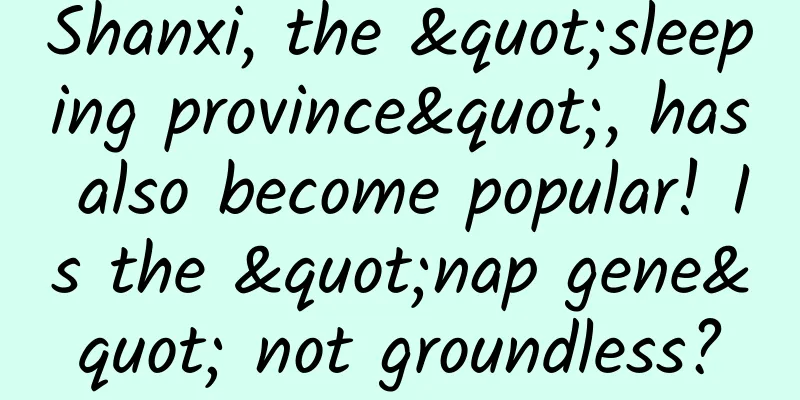
|
It is said that the two things that a Shanxi person cannot live without in his life are vinegar and a nap. Shanxi people attach great importance to the nap to the extent that "if you don't eat on time, you may go hungry", because even restaurant staff and food delivery boys have to take a nap. Image source: Bailu Video When friends from other places were confused and asked, "Does this nap have to be taken?", friends from Shanxi were also lamenting, "Why isn't the afternoon nap uniform across the country?" Image source: A social platform What exactly causes Shanxi's unique "nap culture"? The most common explanation is that Shanxi people's diet is mainly based on carbohydrates such as rice and flour, which makes them more prone to physiological reactions of sleepiness after meals. From a biological point of view, is it really easier to feel sleepy after eating foods with high starch content? “Food-dizzy”? “Carbohydrate-dizzy”? People do feel sleepy and want to sleep after eating high-carb and greasy foods. This physiological phenomenon is called postprandial somnolence, also jokingly called "food coma". There is a long-standing explanation for "food dizziness": after eating too much, the blood flows to the stomach, the brain is deprived of oxygen, and you start to feel sleepy. In addition to the "oxygen supply" hypothesis, there is also an explanation advocated by "acid-base theory" enthusiasts: after a meal, due to the consumption of gastric acid, the blood becomes alkaline, leading to alkalosis, which makes people dizzy. Copyright images in the gallery. Reprinting and using them may lead to copyright disputes. This statement is of course incorrect, because the human body has a very stable buffer system, and the pH value of the blood will not change in one meal . Moreover, if this logic is true, then drinking soda water and carbonated drinks becomes a very dangerous thing. Since the above two hypotheses are not reliable, what is the truth about "carb dizziness"? There are currently two mainstream hypotheses in academia: 1 Hormone hypothesis After eating a large amount of carbohydrates, blood sugar rises rapidly, inhibiting the secretion of hypocretin. This hormone is also called orexin. As the name suggests, it is a hormone that promotes eating. Because you need to stay awake during eating, it can also regulate sleep. In addition, within two hours after a meal, the content of cholecystokinin increases significantly. It is a satiety signal of the body and can make people feel sleepy. 2 Vagus nerve hypothesis When food is "stuck" in the gastrointestinal tract, the vagus nerve distributed in the stomach wall and intestinal wall is activated by mechanical force, and then stimulates sleep centers such as the hypothalamus, producing drowsiness. Of course, there are many other hypotheses, but no matter which hypothesis it is, it can explain why the Shanxi people who love to eat noodles are so "sleepy". However, if you always feel drowsy after meals, in addition to the above physiological mechanisms, you should also be alert to diseases such as diabetes, postprandial hypotension, hypothyroidism and cardiovascular disease. Wait a minute Love of naps may be due to genes?! In fact, whether to take a nap or not is influenced not only by culture but also by genes . A study on twins found that napping has a strong genetic similarity. Inspired by this study, researchers at Massachusetts General Hospital in the United States launched a large-scale genome-wide association analysis to find out which genes make people more likely to take naps. This study called a genetic database containing 450,000 people and asked them to fill in their nap needs. Among them, 38.2% filled in "sometimes" taking naps, 5.3% filled in "often" taking naps, and the rest "never/rarely" taking naps. After comparing the nap needs of different people with their genome sequences, it was found that there are 123 sites related to naps. After further subdividing these gene loci, the researchers found that people who tend to take naps frequently can be divided into three categories: Long sleepers: Some people naturally need longer sleep than others; Light sleepers: Some people have poor sleep quality at night and need to take a nap to make up for it; Early risers: Some people wake up too early and need to catch up on some sleep to recharge. The researchers also found that napping is associated with some clinical diseases. For example, people with obesity and high blood pressure tend to take naps more frequently. In addition, the gene loci associated with napping are closely linked to neural signals associated with wakefulness , the most notable of which is the orexin mentioned above. It seems that under the dual influence of genes and diet, some people are destined to take a nap. Healthy napping habits The genetic determinism of naps tells us that some people who love to take naps really feel that their bodies are sleep deprived and rely on naps to make up for it. This is just like some people have low nutrient absorption efficiency or high daily energy consumption, which means they eat more than others. So, instead of forcibly fighting against the body, it is better to satisfy the physiological needs and take a nap when you feel sleepy! What's more, naps can bring many benefits. Some scientists even call naps "power naps." Studies have found that when sleepiness strikes and you feel groggy, just 7 to 10 minutes of sleep can significantly improve alertness and reduce your body's sleepiness. This is because "napping" can quickly eliminate the brain's inhibition of "wake cells." People who stay up late and work overtime can also relieve fatigue by taking a nap. As the saying goes, sharpening the knife makes the work easier, and a short nap will increase work efficiency. Copyright images in the gallery. Reprinting and using them may lead to copyright disputes. Napping not only has quick positive effects, it also helps long-term health. A study published in the journal Sleep Health showed that people who take naps have younger brains when they get older and are less likely to develop Alzheimer's disease . This study comprehensively analyzed the genome, brain volume, and memory data of 370,000 British people aged 40 to 69, and found that people who love napping have larger brain volumes than their peers. Because brain volume measurements can be regarded as an indicator of neurodegenerative diseases, after the age of 35, the volume of the whole brain will steadily decrease with age (0.2% per year, and ≧ 0.5% per year after the age of 60). Based on this theoretical calculation, it was found that the brains of people who are accustomed to taking naps are 2.6 to 6.5 years younger! The researchers said that this difference is roughly equivalent to the difference in brain volume between people with normal cognitive function and those with mild cognitive impairment. However, it should be noted that although taking a nap has many benefits, taking a nap for too long, taking a nap at an inappropriate time, or taking a nap in an uncomfortable posture may actually bring health risks. References [1]Binks, H., et al. Effects of Diet on Sleep: A Narrative Review. Nutrients, 2020. 12, DOI: 10.3390/nu12040936. [2]Bazar, KA, AJ Yun, and PY Lee, Debunking a myth: neurohormonal and vagal modulation of sleep centers, not redistribution of blood flow, may account for postprandial somnolence. Medical Hypotheses, 2004. 63(5): p. 778-782. [3]Cousins, JN, et al., The long-term memory benefits of a daytime nap compared with cramming. Sleep, 2019. 42(1): p. zsy207. [4]Dinges, DF, et al., The benefits of a nap during prolonged work and wakefulness. Work & Stress, 1988. 2(2): p. 139-153. [5]Kim, SW and BI Lee, Metabolic state, neurohormones, and vagal stimulation, not increased serotonin, orchestrate postprandial drowsiness. Bioscience Hypotheses, 2009. 2(6): p. 422-427. [6]Lovato, N. and L. Lack, The effects of napping on cognitive functioning, in Progress in Brain Research, GA Kerkhof and HPAv Dongen, Editors. 2010, Elsevier. p. 155-166. [7]Milner, CE and KA Cote, Benefits of napping in healthy adults: impact of nap length, time of day, age, and experience with napping. Journal of Sleep Research, 2009. 18(2): p. 272-281. [8]Orr, WC, et al., Meal Composition and Its Effect on Postprandial Sleepiness. Physiology & Behavior, 1997. 62(4): p. 709-712. [9] Wurtman, RJ and JJ Wurtman, Brain Serotonin, Carbohydrate-Craving, Obesity and Depression. Obesity Research, 1995. 3(S4): p. 477S-480S. Planning and production This article is a work of Science Popularization China-Starry Sky Project Produced by: Science Popularization Department of China Association for Science and Technology Producer|China Science and Technology Press Co., Ltd., Beijing Zhongke Xinghe Culture Media Co., Ltd. Author: Hardy, PhD in Neurobiology, Zhejiang University Reviewer: Li Jingjing Professor and Chief Physician, Department of Neurology, Beijing Tiantan Hospital Planning丨Yinuo Editor: Yinuo |
Recommend
Planting trees at an altitude of 3,600 meters, the barren mountains are turning green!
"Gelsang flowers are in bloom, trees are lus...
Cosmic Bullying: How Do Big Stars Snatch Up Planets?
Image: Planetary plunder may be occurring in NGC ...
China Association of Automobile Manufacturers: Automobile manufacturing industry's operating income will continue to grow from January to July 2023
According to data from the National Bureau of Sta...
Are the popular smart TVs facing alienation from the younger generation?
In the middle of the year, promotional activities...
How much does it cost to develop a film and television mini program in Changsha?
There is no fixed price for the development of Ch...
On the Qinghai-Tibet Plateau, China built a national park larger than Yellowstone Park!
China's first national park is located in the...
A comprehensive introduction to OPPO's advertising marketing platform and advertising types
OPPO Marketing Platform is a media platform based...
Kailian Capital: Power Battery Monthly Report for May 2022
Background Under the " dual carbon " to...
It was revealed that odor enhancers were used, and the supervisors were fumigated with "masks of pain". Has the snail noodle also "collapsed"?
In recent years, a "notorious" internet...
What is the spirit of scientists?
On Youth Day, I saw a trending search on the topi...
Poor sales of Samsung and Apple drag down Ericsson, making domestic mobile phones lambs to be slaughtered?
“-10%”. Ericsson's performance in 2016 can on...
FCA's smallest North American assembly plant will close next month, and Dodge Viper production will cease
According to foreign media reports, FCA said it w...
The secret to increasing fans and realizing monetization through refined operations!
Although traffic and fans are very important, wit...
Does breathing through the mouth really ruin your appearance?
We need to breathe every moment, but have you eve...
Uber's true entrepreneurial history: Each of its founders is now worth $5 billion
Uber is already 5 years old. For many users, the ...

